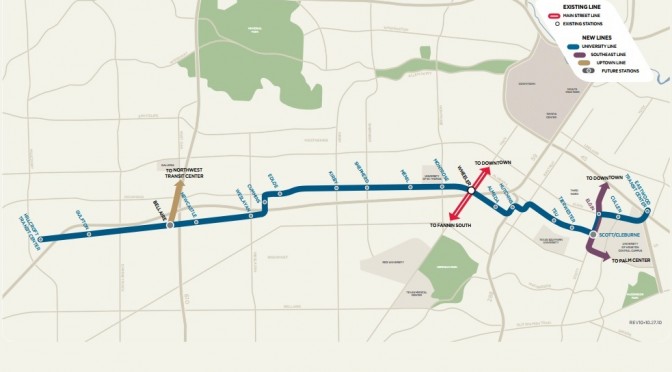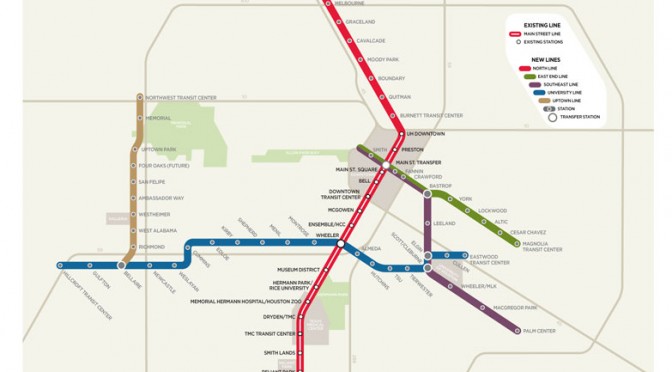
It's probably no secret that recent years have brought some huge changes at METRO... a complete scrubbing of former leadership, the formation and soon-to-be implementation of an
entirely new local bus system, and the successful construction of
3 new light rail lines. For all these reasons, the METRO of today has very little …
Continue Reading ››
Unless mine eyes and ears deceived me...
yes. Though unlike the Chronicle's Dug Begley, I'm not exactly ready to call him a 'new rail line champion'.
In a bit of a shocker on the House floor yesterday, Congressman Ted Poe spoke in support of federal funding for Houston …
Continue Reading ›› 
As we continue to disseminate the long arms of the 2012 election, one particular result has altered the immediate future for Houstonian... The METRO referendum passed by an impressive margin. What's good about the result is that it shows Houstonians support their public transit.
But the "devil" of this decision was in the …
Continue Reading ››
A Voice for the Rest of Texas

